When talking about scoring or measuring deer antlers, there are a few different terms that you need to know. And we’ll dive into those as well as the overall process you should go through when scoring a buck’s antlers.
Check out this video below where we go through the step-by-step process of how to score a deer’s antlers…

Basics & What You Need
Scoring a rack may seem like a somewhat complex process, but when you break it all down it’s pretty simple. You just need to know a few basic terms.
The four main measurements that you’re looking at on a rack are the length of each antler point, the mass between the points, the length of both main beams, and the width between both main beams.
There really isn’t much you’ll need to score a rack. Just a flexible tape measure, and a piece of paper to keep track of measurements. And the order in which you take these measurements isn’t relevant. Just make sure you get all of them!
"G" Measurements
When people are talking about G2’s and G3’s they are referring to the tines of each antler. Each tine sticking up is referred to as a “G” plus whichever number it comes in order starting from the base of the main beam.
So the brow tines, are also known as the “G1”, which means the next tine will be the “G2”, and so on. Typically with a whitetail deer, the G2 and G3 are the longest tines, but that isn’t always the case.
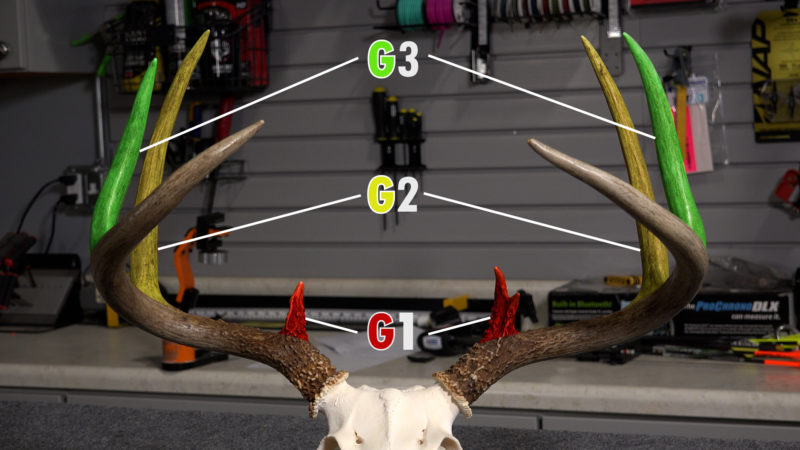
As you can see in the image above, this typical 8-pointer has a G1 (brow tines), G2 (2nd tine on main beam), and a G3 (3rd tine). If it was a typical 10-point buck, the next tine in order would be considered a G4. But since the next point after the G3 is the end of the main beam, this buck does not have any G4’s.
When measuring these tines, you start the measurement at the base of where the tine starts, and go up to the tip of the point. It can be a little confusing when figuring out where to start the measurement, so what you can do is put a piece of tape or make a mark with a pencil where the main beam would be if there was no tine there.
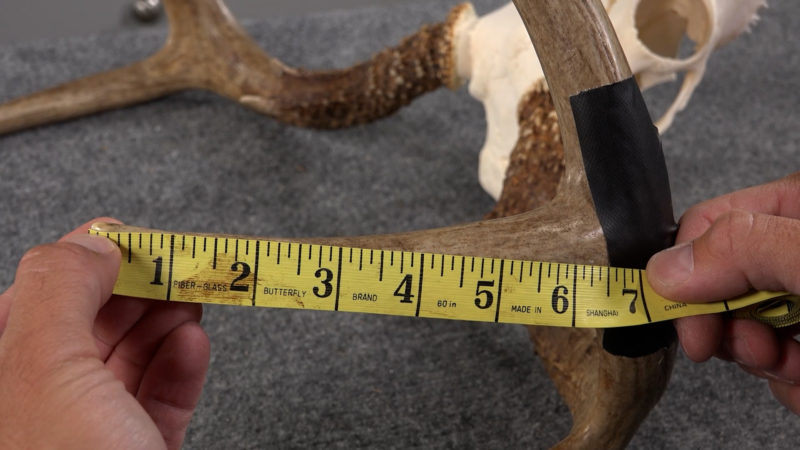
"H" Measurements
The other basic term that hunters often refer to would be the “H” measurements. When talking about the “H” measurements, those are the circumference measurements between antler tines. And when you take those, you’re always using the smallest circumference between points.
One of the most forgotten or messed up part of scoring antlers, are the H measurements and this is because no matter how many tines the deer has, you will always take 4 measurements from each side. Whether it’s an 8 point buck, or a 12 pointer, there will ALWAYS be 4 measurements on each side.
The H1 measurement is the smallest circumference between the base of the main beam, and the G1. The H2 is the smallest circumference between the G1 & G2, and so on.
However, the H3 & H4 are often messed up or missed, and here’s why. If you were measuring an 8-pointer, like the one we were using, the H4 measurement will be at the middle point between the G3 and the end of the main beam.
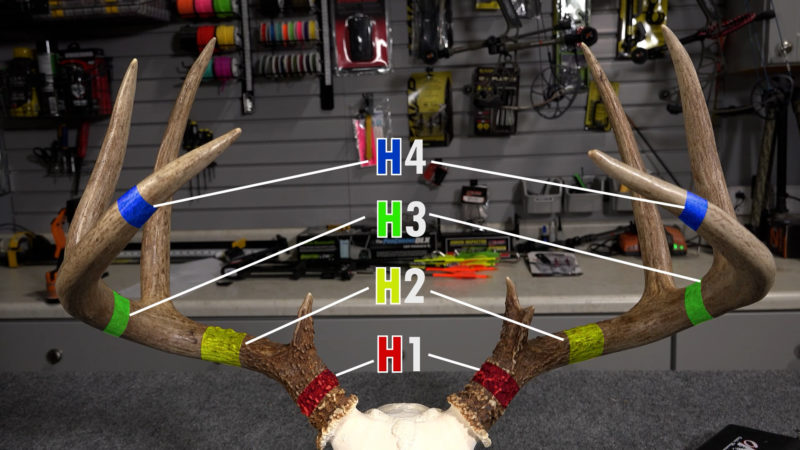
So if the distance from G3 to the end is 8 inches, you’ll take the H4 measurement at the exact middle point, which would be 4 inches from the G3.
And if you were measuring a 6-point buck, your H3 & H4 measurements will be taken at the middle point between the G2 and end of main beam. Making those 2 measurements exactly the same.
Main Beams & Inside Spread
The 2 measurements you’ll need from the main beams, are the length of each beam, as well as the spread between the inside of the rack.
When taking the measurement of each main beam, you want to start at the back of the base of the main beam. And measure around the outside of the beam until you get to the point.
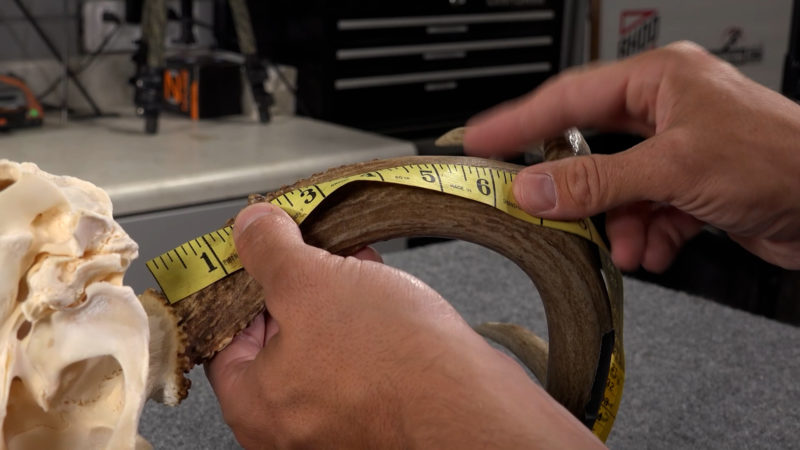
The last measurement you’ll need to get is the spread. Keep in mind that this is taken on the inside of the main beams, not from the outside.
So to do this, you need to find the widest distance between main beams, while trying to keep a 90 degree angle from the center line of the deer’s skull.
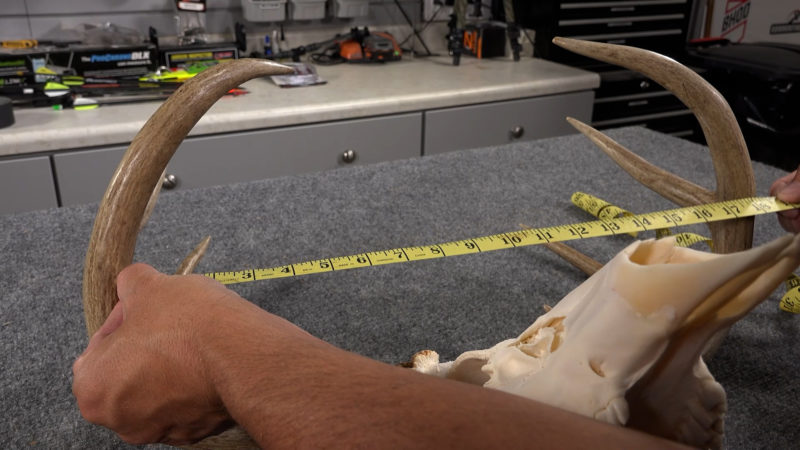
Totaling The Score
To finish off scoring this buck, all you need to do is add up all your measurements. So for this 8-pointer, there will be six total “G” measurements, eight “H” measurements, two main beam lengths, and the inside spread.
Just like that, you’ve got the gross score of your buck! Figuring out the “net” score is a little more complex, and isn’t needed unless you’re entering it into a record book. But what most hunters typically go by is the gross score.

 By
By 



